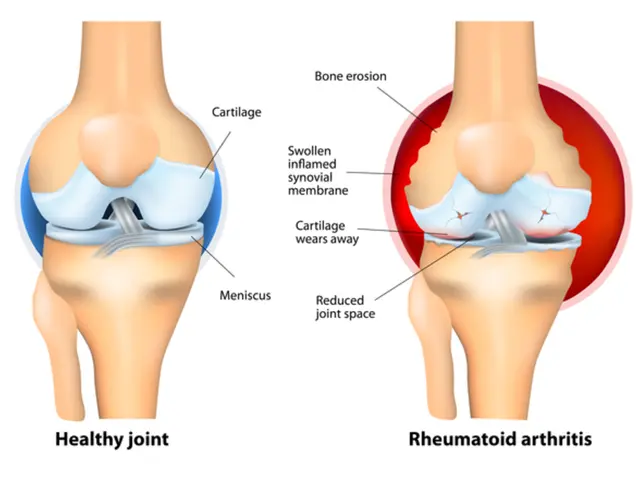Long-term Impacts of Bulimia on the Physical Body
Bulimia Nervosa, a type of eating disorder, can have severe and potentially life-threatening impacts on an individual's health, particularly on the heart. While the long-term cardiac effects of bulimia have not been extensively studied, research suggests that the disorder shares similar mechanisms with anorexia nervosa, leading to comparable risks.
Repeated purging behaviours such as vomiting or laxative abuse can cause electrolyte imbalances, primarily leading to hypokalemia (low potassium) and hypomagnesemia (low magnesium). These imbalances can result in dangerous abnormalities in the heart’s electrical conduction, increasing the risk of irregular heartbeats and sudden cardiac arrest.
The electrolyte imbalances also contribute to arrhythmias, potentially fatal disruptions in heart rhythm. Long-term cardiac complications include changes in heart structural and electrical function, such as QT interval prolongation, bradycardia (slow heart rate), and even heart muscle atrophy in severe cases.
In addition, bulimia can lead to low blood pressure and orthostatic hypotension (drop in blood pressure when standing), increasing cardiac stress and causing symptoms like dizziness and fainting. Over time, the heart muscle may weaken due to malnutrition and fluctuating electrolytes, reducing its ability to pump blood effectively, which can cause fatigue and diminished exercise capacity.
Some patients with bulimia may also experience mitral valve prolapse and other structural heart changes linked to poor nutrition and electrolyte disturbances. While many of these effects can improve with treatment and nutritional rehabilitation, some damage may be long-lasting or fatal without proper medical intervention.
It is essential to note that bulimia often occurs alongside other mental health conditions, with 94.5% of people living with bulimia also meeting the criteria for at least one other mental health condition. Reducing calories through purging can lead to the breakdown of muscles and other tissues within the body, including the heart, which can increase the risk of heart failure.
The lifetime prevalence rate of bulimia is about 1%. Living with bulimia can lead to various health complications, including accelerated bone loss and conditions such as osteoporosis, reducing the number of red and white blood cells in the blood, issues with the reproductive system, anemia, and conditions affecting the integumentary system.
In conclusion, the major long-term cardiac risks of bulimia include electrolyte-induced arrhythmias, bradycardia and hypotension, structural heart changes due to malnutrition and electrolyte effects, and the risk of sudden cardiac death due to electrical instability of the heart. It is crucial for individuals struggling with bulimia to seek professional help and treatment to manage these risks and improve their overall health.
- Bulimia Nervosa, a mental health disorder that falls under the umbrella of eating disorders, can cause severe health issues, particularly affecting the heart, due to repeated purging behaviors.
- The electrolyte imbalances that result from purging can cause dangerous abnormalities in the heart’s electrical conduction, increasing the risk of irregular heartbeats, potentially resulting in sudden cardiac arrest.
- In addition to cardiac complications, bulimia can lead to low blood pressure, malnutrition, and degeneration of the heart muscle, reducing its ability to pump blood effectively and causing fatigue and diminished exercise capacity.
- Women's health is also affected by bulimia, with some patients experiencing mitral valve prolapse and other structural heart changes linked to poor nutrition and electrolyte disturbances.
- Furthermore, living with bulimia can lead to a variety of health complications, such as accelerated bone loss, conditions like osteoporosis, anemia, and issues affecting the integumentary system, stressing the importance of seeking professional help and treatment for overall health improvement.





